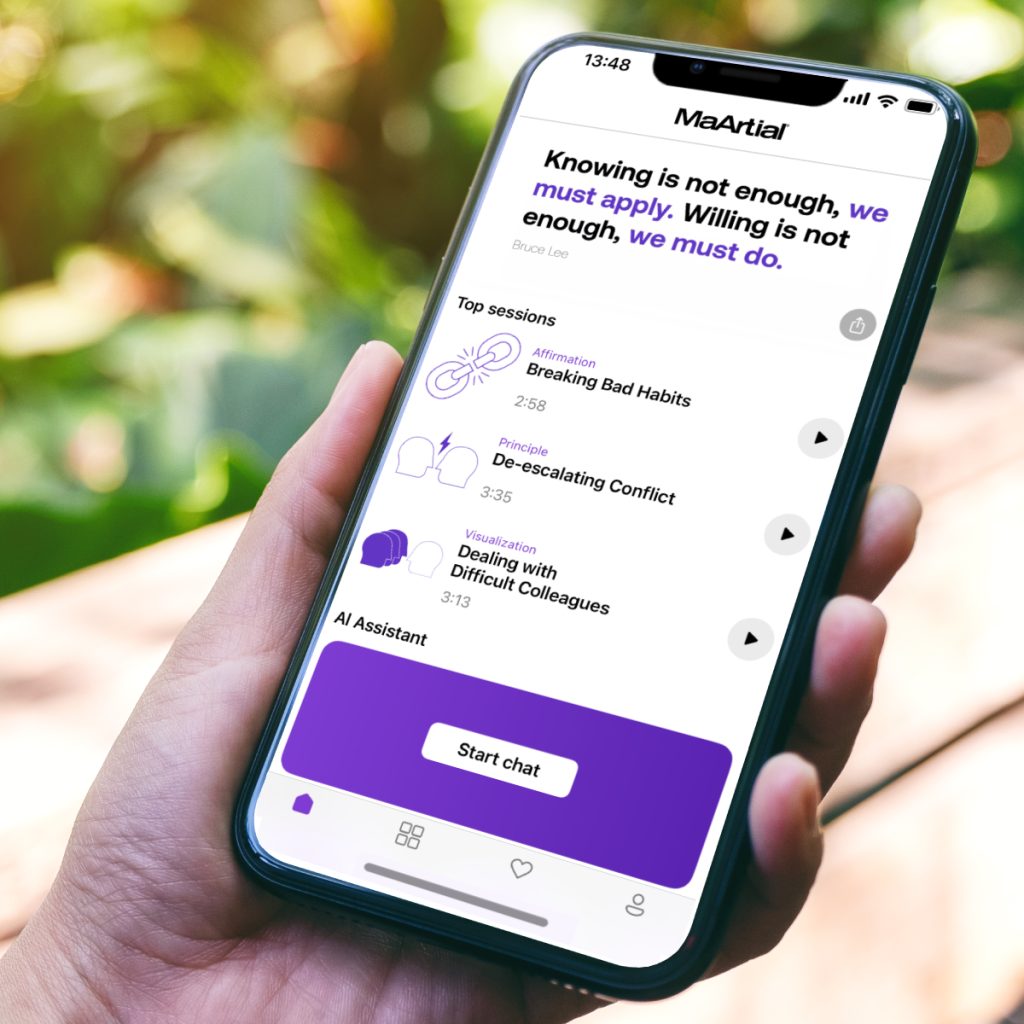The most effective form of personal safety and self-defense is avoidance: you can’t become a victim if you aren’t attacked in the first place.
Basic tips might include avoid being alone at night, but confrontations can still occur in groups, or during the day. Use the following tips to avoid being targeted by potential attackers in all scenarios.
1. Look confident
This can be tough, but human predators are just like their counterparts in the animal world: they’ll pick on a target they believe to be easy prey. Tips to look confident:
- Walk purposefully with your head held high, observing what is happening around you.
- Wear smart and tidy clothes and maintain an all-around neat appearance, these make you appear more powerful and less victim-like to a potential attacker.
- Wear black or very dark clothes: in our culture, people associate black with power, confidence and even a little bit of danger. This goes for predators, too, and can help put them off.
If you’re not a naturally confident person, the above tips might be difficult to practice. Some tips to achieve and display a good level of natural confidence:
- Attend some good self-defense classes where you can pick up some basic tips early on about defending yourself.
- Try to look for a supportive instructor who encourages his or her pupils.
- When you’re out, think about the successes you’ve had in the class: how you knocked that big guy holding the pad back on his heels with a single punch how you got up the ground so quickly when they were trying to keep you there, etc.
- Before you embark on any challenge, whether it be taking an exam, giving a presentation, or just safely walking down the street, think about anything that makes you feel good about yourself. Good things that you have done and are proud of, or people that love you and value you as a person. Every person has value to every other person. You are one of those people, so be aware of it, feel it, show it, and you will greatly reduce your chances of being a victim.
- Adopt simple strategies to trigger positive feelings. Some people tap their chest twice, some do the Bao Quan (抱拳), literally meaning “Fist Wrapping” martial arts salutation, whatever it takes to invoke that mental state. These little rituals work, they relate to the rituals people perform in religious ceremonies to transform their mental state.
2. Street positioning and strategy
Where you walk in relation to your surroundings can have a big impact on being targeted by a potential attacker. Always take note of where you position yourself.
Walk on the outside of the pavement, as this gives less chance of opportunist attacker grabbing you and pinning you to a wall. Also, regarding flight from this position, the road offers an escape option albeit a dangerous one. Run along the side of the traffic first rather than straight into it, shout and try to attract motorists’ attention, and when you have an opportunity try to cross the road. An attacker is unlikely to pursue in these circumstances.
Remain alert to all dangers, and adjust accordingly. You are more vulnerable to attack if carrying a large bag or other items. Avoid isolated or narrow paths. Take note of the other people around you.
Don’t take any chances you don’t have to. If carrying a large bag in a dangerous area, take a cab. It might cost a bit more but is worth it, as predators love people who have encumbrances that stop them from fighting or running away.
Give corners a wide berth, whether you be on the street or indoors; walk around corners as far away from them as you can to avoid surprises on the other side.
On public transport, either stand or get an aisle seat near the exit; if trouble walks onto your carriage in any form, change carriages as soon as you can. On a bus, move away as best as you can, this is easier if you stand near an exit or sit by the aisle.
NEW! Put the principles from this article into practice with the free courage-boosting MaArtial app on the App Store for iOs and Play Store for Android.
3. Don’t Give them an Excuse
Be aware and be observant, but avoid eye-contact with people passing you. Some people can take eye-contact as a challenge. If you walk past a crowd and someone gives you lip or jostle you slightly, keep walking: don’t stop to give in to confrontation. Keep on walking briskly forward in an untroubled fashion.
It can be very hard to do this, but what is the point of stopping? You run far more chance this way of ending up in a physical confrontation, you’ll probably be outnumbered, and fighting of any type is dangerous. Only do it if you have to!
4. Develop your verbal skills.
There’s normally some verbal preamble to most confrontations, so practice accordingly. In general, it’s good to have some phrases in the arsenal which break an assailant’s script.
Attackers often have a certain verbal scenario in their head such as:
- “you looking at me you ****?
- you want a ******* photo?
- I’m going to ******* do you …”
You can break the script by asking something absurd such as “what’s your favourite form of sherry, dry or sweet?” In the split second of confusion this gives you, you’ll have a chance to make an escape straight away. Have replies ready to questions such as “what are you looking at,” which won’t escalate the situation. Something like “I’m sorry, I thought I was just staring into space, apologies if I caught your eye,” delivered with a firm confident voice can help.
5. Don’t be left incommunicado or isolated
The following points are very important:
- Carry a spare mobile and/or a working phone card, in a pocket on your body if possible.
- Memorise the number of a local and trusted cab firm and if you’re away from home; know who to call if you find yourself without your phone, etc..
- Make sure that at least one contactable person knows where you are going and knows when to raise the alarm if you’re not back by a certain time. In the real world, not all of us are wholly honest with people around us re what we’re doing. But this can be dangerous, make sure at least one trusted person knows where you are and when you’re supposed to be back.
People often get in real trouble if they become isolated for any reason, and vulnerable to all kinds of dangerous people; make sure you have an escape route. This applies particularly to women who have had their handbag stolen, hence the emphasis above on keeping spare communication devices next to your skin. Buy a traveling money belt and store spare cash and communication devices in there.
6. Have a Password
This sounds dramatic, but if you’re in an extreme situation and are not able to speak freely when somebody contacts you, have a password or phrase such as “my knee still hurts” which alerts that person that something is wrong. This may sound a bit like the movies, but there’s no harm in having this kind of password just in case.
7. Taking out cash
Take your cash out during the day, when it’s nice and busy around the cash point. Try and avoid using cash points in dangerous areas; pay for your round by card if you need to. If you must use them, check the surrounding area before you go to them, have an everyday object ready to weaponize, and get in and out very quickly. Best to have spare cash always available next to your body.
[text-block-start]
The practical tips in this article provide one of the best forms of self-defense: avoiding confrontation in the first place. Sometimes, however, confrontation is unavoidable. See our follow-up Personal Safety Guide for tips on what to do if attacked or threatened.
[text-block-end title=”MaArtial comment”]














